
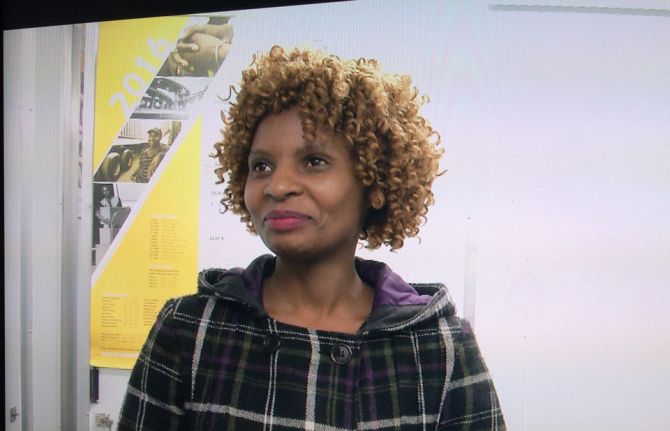
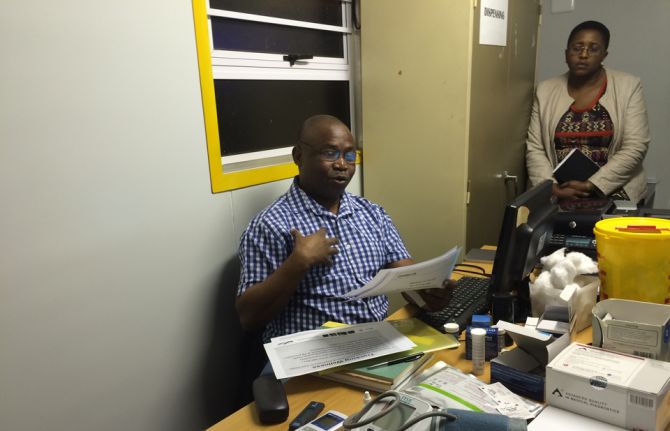
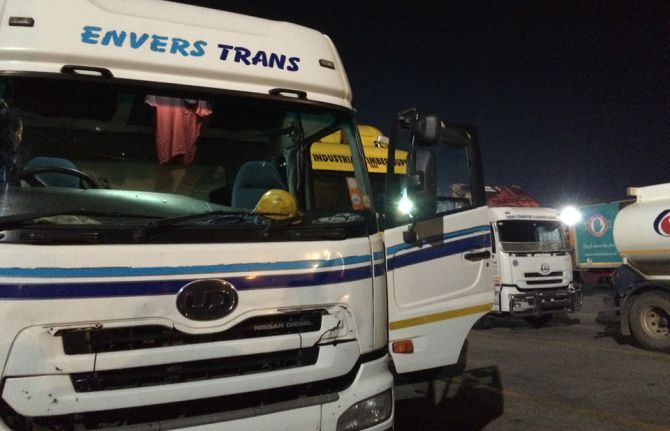
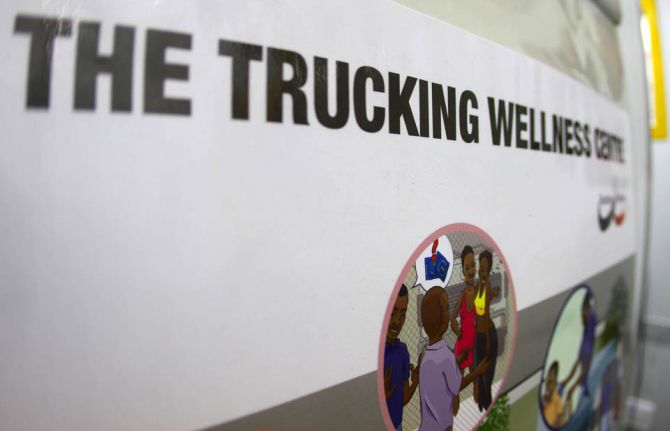
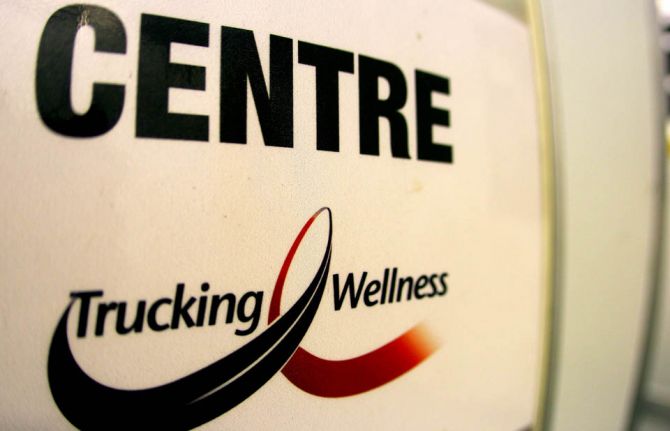
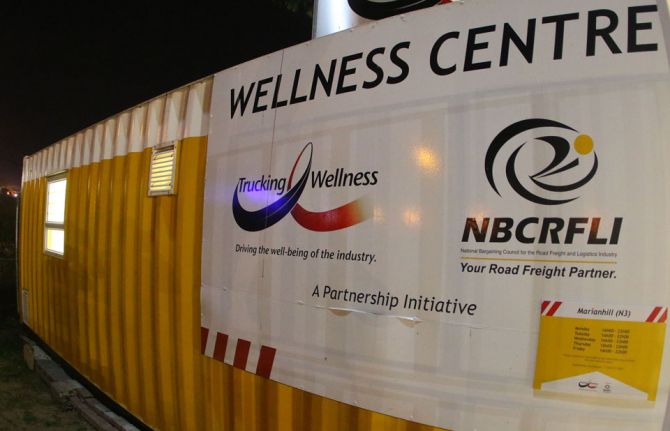
Feature Story
One-stop-shop for truckers’ health in South Africa
17 November 2016
17 November 2016 17 November 2016Mandie Pakkies is shivering outside in her thin black coat on a chilly Durban winter’s night at a truck stop in the suburb of Marianhill on one of the main trucking routes out of Africa’s busiest port. The steady stream of trucks passing by on the highway do not disturb her. She’s actually eager for some of them to pull in for diesel and even a chat. Her job is to encourage truck drivers to take care of their health, and when they park up for the night she invites them into a clinic constructed out of shipping containers at the far end of the truck stop.
“These drivers have such pressing health needs! It’s encouraging to see them come to have their blood pressure taken or want to know their HIV status,” Ms Pakkies said. “I am even teaching them the basics like “drink water”, or “walk 20 minutes to get exercise before you go to sleep in the parking lot.””
The clinic opens in the evenings to coincide with the overnight stop that many truckers make before loading up at the port first thing in the morning. Ms Pakkies, the peer educator, and Thuthuka Xulu, a professional nurse, work side by side welcoming truck drivers and the sex workers from the surrounding streets, who come into the parking lot with the drivers. “We not only provide basic health services, but we test for HIV, tuberculosis and sexually transmitted infections, and of course we distribute a lot of condoms,” said Mr Xulu.
With 2000 trucks passing weekly at the Marianhill site and about 500 trucks parking overnight, the team has plenty to do. Truck drivers come from all over South Africa and neighbouring countries. Owing to their erratic schedules and mobility, truckers face many challenges in accessing basic health services. To respond to these needs and those of the sex workers who work around the truck stop, Truckers Wellness established a network of clinics along the major trucking routes around South Africa.
The Marianhill Trucking Wellness Centre is one of 22 such clinics in the country within a larger network of trucker outreach projects across the region. This programme, launched in 1999, is funded by the freight industry and truck owners and linked to Department of Health services. In the last five years they have tested more than 10 000 people for HIV, averaging around 30 tests per week.
“We are seeing more people get tested and seek our services,” added Mr Xulu, seated behind a cramped desk covered with folders, a box of surgical gloves and HIV testing kits.
The next step for his centre is to be able to adopt the World Health Organization’s guidelines, so that patients can start antiretroviral therapy immediately if they test positive. Grinning he said, “That will really enlarge the scope of our centre.”



